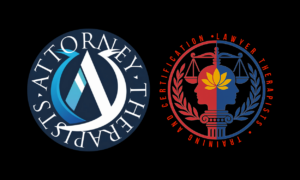This Article explores how the legal profession’s reliance on dualistic thinking—a mode of cognition that privileges empirical, logical, and binary analysis—contributes to significant mental health challenges among attorneys. Drawing from cognitive psychology, affective neuroscience, and philosophical traditions, this Article argues that attorneys’ devaluation of intuition and emotional insight impairs not only personal well-being but also decision-making efficacy. The profession’s normative framework, particularly litigation’s epistemological commitments to demonstrable evidence and provable facts, marginalizes internal, subjective ways of knowing. This displacement of non-conceptual insight creates a chasm between the cognitive and emotional lives of attorneys, resulting in internal conflict, professional dissatisfaction, and interpersonal disconnection. This Article proposes a new paradigm for legal mental health grounded in integrative cognition—where intuition, emotion, and logic are understood as coequal forms of knowing.
Introduction
Attorneys are trained to think in terms of distinctions: right and wrong, guilty or not guilty, liable or not liable. This dualistic framework underpins legal education, informs courtroom strategy, and shapes the professional identity of lawyers. But what is often overlooked is the toll this mode of thinking exacts on the emotional and psychological health of attorneys, especially when it extends beyond the professional domain and into one’s internal life.
Dualistic thinking, by its very nature, excludes complexity, ambiguity, and subjectivity. It prioritizes cognitive parsing over felt experience, logic over empathy, and proof over perception. While these cognitive habits may serve attorneys well in courtrooms and negotiations, they can hinder attorneys from accessing deeper emotional truths, intuitive insight, and the kind of non-rational wisdom necessary for both interpersonal connection and personal meaning.
The Nature and Consequences of Dualistic Thinking
Dualistic thinking, also known as binary or black-and-white thinking, reduces experience to oppositional categories: success/failure, right/wrong, strong/weak. Cognitive-behavioral therapy (CBT) identifies this as a form of cognitive distortion—“all-or-nothing” thinking—that contributes to anxiety, depression, and burnout. In the legal profession, however, this distortion is institutionalized.
Law school trains students to “think like a lawyer” through the case method, Socratic questioning, and emphasis on precedent—all of which reward dispassionate analysis and minimize the role of subjective experience. While this skillset is indispensable in legal reasoning, it conditions lawyers to internalize the notion that feelings are irrelevant or even obstructive.
The long-term effect is alienation—from one’s inner life, from relationships, and from the kinds of spontaneous, unfiltered insight that often emerge through intuition or emotional resonance. Attorneys may begin to mistrust instincts that cannot be parsed analytically or proved evidentially. The result is a kind of epistemic rigidity that privileges clarity over truth.
The Wisdom of Intuition and Emotion
Contrary to the assumptions of dualistic thinking, a robust body of psychological literature affirms that emotion and intuition are not antithetical to reason but are in fact integral to sound decision-making. Antonio Damasio’s seminal work in affective neuroscience demonstrates that emotion plays a critical role in what he terms “somatic markers”—physiological cues that help guide complex choices. Without emotional input, decision-making becomes paralyzed, as demonstrated in clinical studies of individuals with ventromedial prefrontal cortex damage.
Similarly, psychologist Gerd Gigerenzer has argued that intuitive judgments—what he calls “fast and frugal heuristics”—can outperform deliberative reasoning in many real-world situations. Intuition operates beneath the threshold of conscious awareness, synthesizing vast amounts of experience and embodied memory without requiring conscious effort or articulation. Unlike dualistic reasoning, intuition is holistic, non-linear, and inherently irreducible to binary terms.
Yet the legal mind, shaped by evidentiary standards and adversarial logic, often dismisses such insights as speculative. This becomes especially problematic when attorneys attempt to apply their professional epistemology to personal life. The demand to “prove” the validity of one’s feelings or instincts before acting on them undermines the capacity for relational intimacy, creativity, and psychological flexibility.
The Professional Dilemma: Proving the Unprovable
Legal practice, particularly litigation, mandates demonstrable proof. Rules of evidence prohibit the introduction of hearsay, speculation, or any information not anchored in empirical verification. This ethos becomes internalized, leading attorneys to mistrust aspects of experience that are not externally verifiable.
In the courtroom, this bias may be a necessary feature of justice. But in the internal world of the attorney, this same standard becomes a form of self-alienation. Attorneys often find themselves attempting to narrate their internal lives in conceptually coherent ways—seeking to “make sense” of emotional discomfort or intuitive doubt through frameworks that exclude the very forms of knowing that would allow integration.
This cognitive dissonance contributes to the elevated rates of anxiety, depression, and substance abuse within the profession. Attorneys report high levels of emotional suppression, interpersonal disconnection, and an inability to find meaning outside of professional success. The problem is not only structural or cultural—it is epistemological.
Toward an Integrative Cognitive Paradigm
To support mental health among attorneys, the legal profession must embrace a more integrative cognitive paradigm—one that honors logic and reason, but also reclaims the legitimacy of intuition and emotional wisdom. This means helping attorneys recognize that what they perceive as “evidence” in their internal world is often filtered through conceptual frameworks that exclude key dimensions of human experience.
Therapeutically, this may involve helping clients identify the limits of dualistic thinking, encouraging them to sit with ambiguity, and cultivating practices such as mindfulness and somatic awareness that reconnect them to intuition. Attorneys must be taught not only how to think but how to feel—and more importantly, how to trust feelings that do not lend themselves to immediate explanation.
This is not a call to abandon rationality, but to contextualize it within a broader spectrum of human knowing. As Einstein once observed, “The intuitive mind is a sacred gift and the rational mind is a faithful servant.” The legal profession has exalted the servant and forgotten the gift.
Conclusion
The mental health crisis in the legal profession cannot be adequately addressed without reckoning with the limitations of dualistic thinking. Attorneys must be invited to reclaim the intuitive and emotional dimensions of experience that have been pathologized or suppressed in the name of professionalism. This reintegration is not merely therapeutic—it is transformative. It enables attorneys to engage more fully with the richness of their inner lives, the complexity of human relationships, and the inherent uncertainty of the world they are tasked with interpreting.
The law may demand proof. But life often demands trust. And learning to trust what cannot be proved may be the most important form of wisdom an attorney can cultivate.









